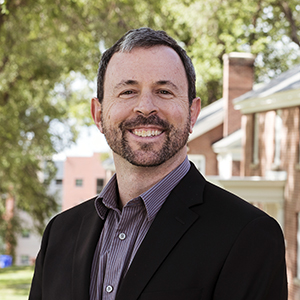Matthew S. Sigman
 Organic Synthesis & Asymmetric Catalysis
Organic Synthesis & Asymmetric Catalysis
Distinguished Professor
Peter J. Christine S. Stang Presidential Endowed Chair of Chemistry
B.S., Sonoma State University, 1992
Ph.D., Washington State University, 1996
NIH Postdoctoral Fellow, Harvard University, 1997-1999
Phone: (801) 585-0774
Office: 3210 HEB
Email: sigman@chem.utah.edu
Research Group
This fellowship was established by Distinguished Professor in Chemistry Matthew Sigman, Ph.D., and Deborah L. Burney-Sigman, Ph.D. with Chemistry donors Jeffrey Marks, Ph.D., and Nancy Yu. Donations will provide support and recognition to outstanding graduate students demonstrating a research focus or interest in physical organic chemistry. GIVE HERE.
Activities & Awards
- Peter J. Christine S. Stang Presidential Endowed Chair of Chemistry, 2012-present
- Fellow of the American Association for the Advancement of Science, 2011
- U of U Distinguished Scholarly & Creative Research Award, 2011
- Arthur C. Cope Scholar Award, 2010
- Robert W. Parry Teaching Award, 2009
- University of Utah Distinguished Honors Professor, 2008
- NSF Faculty Early Career Development (CAREER) Award, 2001-2006
- Research Innovation Award, Research Corporation, 2000-2002
- Camille Dreyfus Teacher-Scholar Award, 2004
- Pfizer Award for Creativity in Organic Chemistry, 2004
- NSF Faculty Early Career Development (CAREER) Award, 2001-2006
- Research Innovation Award, Research Corporation, 2000-2002
Research Interests
Overview. Our program is focused on the discovery of new practical catalytic reactions with broad substrate scope, excellent chemoselectivity, and high stereoselectivity to access novel medicinally relevant architectures. We believe the best strategy for developing new classes of catalysts and reactions applicable to organic synthesis is using mechanistic insight to guide the discovery process. This allows us to design new reaction motifs or catalysts in which unique bond constructions can be implemented furthering new approaches to molecule construction. An underlying theme to these methodologies is to convert relatively simple substrates into much more complex compounds allowing for access to known and novel pharmacaphores in a modular manner. This provides us the ability to readily synthesis analogs enabling us to understand the important structural features responsibility for a phenotypic response in a given biological assay. We are currently engaged in several collaborative projects to evaluate our compound collections for various cancer types at the Huntsman Cancer Institute at the University of Utah and are engaged in follow-up investigations to identify improved compounds as well as understanding the mechanism of action. For more information, please check out our WEBSITE.
